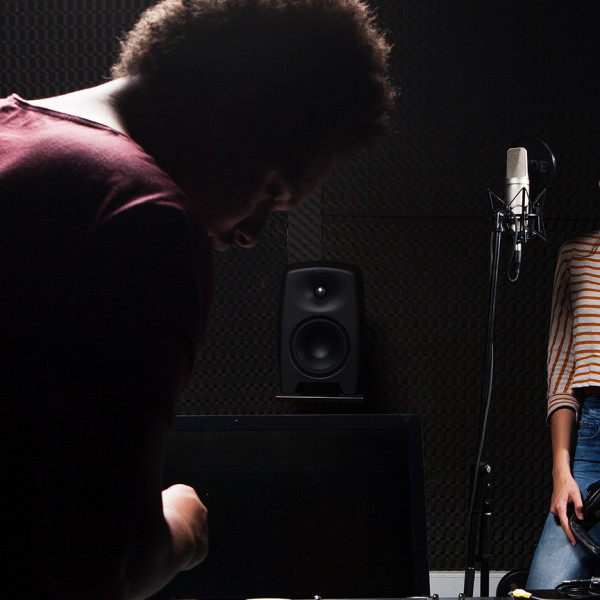
New Courses
Our Courses
Academic Info
Resources
DegreeBachelor
Semesters6
Credits180
-
Admission Conditions
Admission Conditions
Podem candidatar-se a este ciclo de estudos os que apresentem candidatura através do concurso institucional de acesso e tenham aprovação a uma das seguintes provas:- 06 Filosofia
or- 11 História
or- 17 Matemática Aplicada às Ciências Sociais
or- 18 Português
Candidates may also apply via the regimes of institution/programme transfer or via Special Application, in accordance with the legal regulations in force (holders of higher education degree, holders of a Technological Specialization Course, holders of Professional Higher Technician Course or Over 23 years of Age). Candidates who meet the requirements defined in the International Student Statute can also apply.
-
Knowledge, abilities and skills to be acquired
Knowledge, abilities and skills to be acquired
This degree is distinguished by technological investment that characterizes the Lusophone University (Universidade Lusófona). It provides the students with infrastructures and equipment that enhance the optimization of their training and complement the indispensable theoretical dimension of a university course. At the end of first year the students will already master the basic tools of the professional practice. Thereafter, they begin to be referred either to internal projects, such as the "Journalism at Lusófona" blog and LOC - "Lusophone Online: Contents" (LOC - "Lusófona Online: Conteúdos"), internships in various media companies. Preparing media professionals and journalists that are capable of dealing with a job market that is in constant evolution is the main objective of the Licentiate degree in Communication and Journalism.
-
Objectives
Objectives
Journalism is essential to the existence of a democratic society. The Licentiate degree in Communications and Journalism prepares students for an increasingly competitive labour market, marked by the investment on the convergence of journalism and the growing ethical requirements of the profession. Investment on the articulation of a solid theoretical foundation with a practical training that brings them closer to the day-to-day of the multimedia editorial staff. It has a highly qualified faculty that is specialized in the field that it teaches, and is structured in two areas. A specialization according to the means: written, radio, television and digital. Broadening of fields of knowledge: sports journalism, economic journalism, journalism, science journalism, political journalism, journalism and European institutions.
-
Study plan
Study plan
-
1º Ano / Common Core
- [1º Semestre]
-
Communication and Information Law
4 ects -
Computational Thinking
5 ects -
Contemporary History (General)
5 ects -
English I
4 ects -
Journalistic Composition
7 ects -
Narrative Techniques
5 ects
- [2º Semestre]
-
Communication Theories
4 ects -
Contemporary History (Portugal)
5 ects -
Digital Image Computing
5 ects -
English II
4 ects -
Journalistic Genres
7 ects -
Photojournalism
5 ects
-
2º Ano / Common Core
- [1º Semestre]
-
Digital Journalism
5 ects -
English III
4 ects -
Multimedia Computing and Interactivity
5 ects -
Political Journalism
4 ects -
Techniques of Radio Expression
7 ects -
Theories of Journalism
5 ects
- [2º Semestre]
-
English IV
4 ects -
History of Journalism and Public Opinion
5 ects -
Image Analysis Methods
5 ects -
Media Theory
5 ects - Option I
-
Techniques of Television Expression
7 ects
-
3º Ano / Common Core
- [1º Semestre]
-
Journalism and Online Communities
7 ects -
Markets and Media Management
3 ects - Option II
-
Research Journalism
5 ects -
Sports Journalism
4 ects -
Television Journalism
7 ects
- [2º Semestre]
-
Economic Journalism
4 ects - Journalism Seminar/Internship
-
Media Analysis
3 ects -
Radio Journalism
7 ects -
Scientific Journalism
4 ects -
Social Responsibility of the Media
3 ects
-
1º Ano / Common Core
-
Course Team
Course Team
-
Career Opportunities
Career Opportunities
General multimedia journalist. Specialized journalist (including politics, economy, sports, science, culture). Press Journalist (dailies, weeklies, magazines, regional press). Radio journalist (national, regional and local radio). TV journalist (general and specialized). Digital Journalist (individual titles and associates).
-
Future Studies
Future Studies
The Licentiate degree in Communication and Journalism provides adequate training for further studies in the 2nd cycle, in the areas of Journalism, Communication Sciences, Arts and Information Technology. The course is associated with RCCAIT CICANT - Research Centre on Communication, Arts and Information Technologies (CICANT - Centro de Investigação em Comunicação, Artes e Novas Tecnologias), which integrates the School of Communication, Arts and Information Technology (Escola de Comunicação, Artes e Tecnologias da Informação - ECATI) at ULHT, in which the majority of the faculty conducts develops scientific activities.
-
Scientific Areas
Scientific Areas
Jornalismo e reportagem
Lisboa | Esc.Comunicação, Arquitetura, Artes e TI
Current Application Dates
Course Direction
Secretariat
-
Telephone extension676
-
LocationSala F.1.4
-
Service hours2ªf a 6ªf - 10h às 12h30 e das 14h30 às 16h30
Agência de Avaliação e Acreditação do Ensino Superior
Graduation Requirements
Have completed a total of 180 ECTS.










